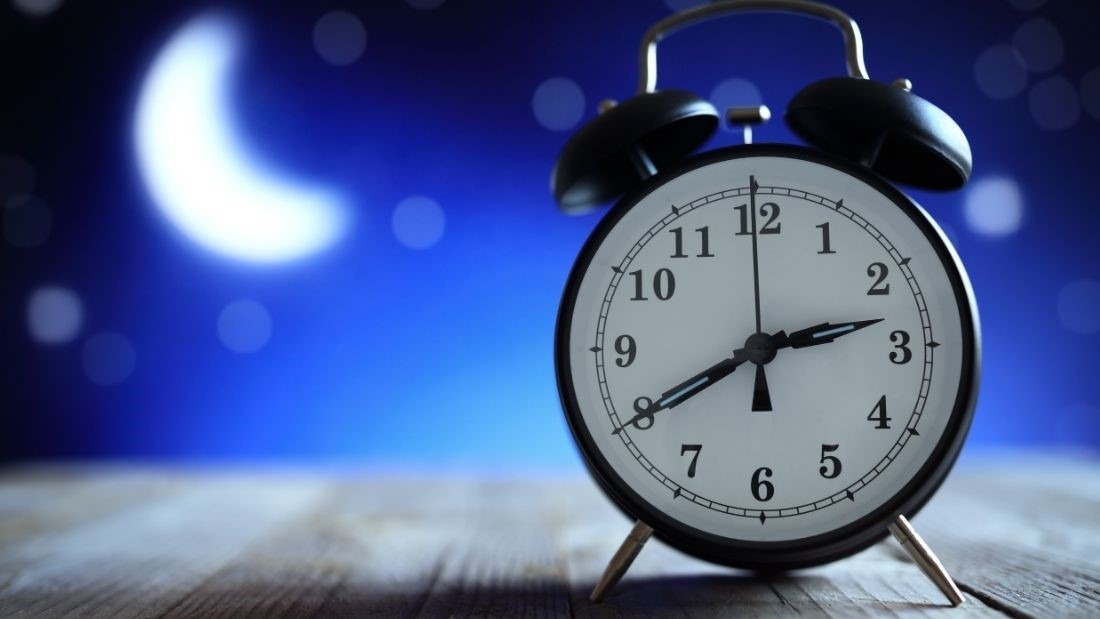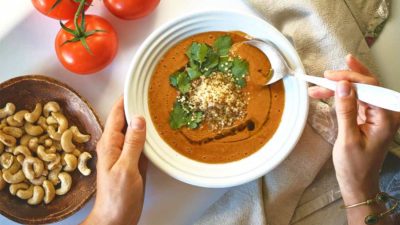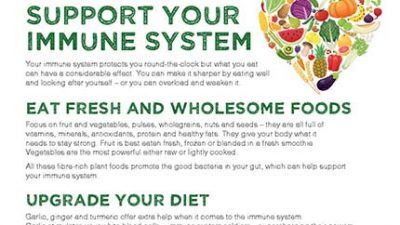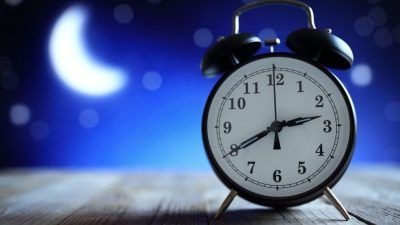How to get a good night’s sleep

Getting enough sleep is vital for good health and reduces the risk of many common diseases, keeps your brain and digestive system healthy and supports your immune system. However, many of us are falling short. What can you do to get a better night’s sleep and can any foods offer help?
Most people need between seven and nine hours sleep a night to function at their best but many struggle to get anything like this. It’s estimated that around a third of us, and nearly half of older adults, have difficulty getting to sleep or regularly wake up too early.
Insomnia – what are the causes and how to combat it?
Insomnia can be an inadequate quality or quantity of sleep, either way, you are left feeling tired! Common causes include stress, anxiety and depression but it’s also a common symptom of the menopause. The general advice is to take regular exercise, go to bed and get up at the same time each day, avoid large meals late at night, don’t smoke or drink alcohol, tea or coffee in the six hours before bedtime, wind down by taking a bath or reading a book and make sure your bedroom is dark, quiet and your bed is comfortable.
But what if you’ve tried all these things and still can’t sleep? Are there any foods that can help? To answer this, we first need to understand a little more about the sleep process.
The sleep hormone melatonin
Melatonin regulates your sleep-wake cycles (circadian rhythm) and is produced in the brain in response to light entering the eye. Levels normally rise at night and fall during the day. You can optimise the timing of production by getting exposure to daylight during the morning and afternoon and avoiding watching TV or using devices with screens that emit blue light late at night. Scientists refer to the effect this has on teens as ‘social jet lag’.
Disrupted melatonin production may be the reason why some people who work night shifts find themselves unable to sleep in the day but then feel sleepy at night. Melatonin supplements may help, but more trials are needed. It may be best to try and optimise your levels naturally.
To produce melatonin, the body needs vitamin B6 and the amino acid tryptophan. Production in the brain is triggered by light signals entering the eye and studies show that a tryptophan-rich breakfast, coupled with daytime exposure to bright light, boosts melatonin, with peak production occurring around midnight in most people.
Vitamin B6
Vitamin B6 is found in nutritional yeast, muesli, avocados, wheat germ, quinoa, acorn squash, banana, sunflower and sesame seeds, tahini (sesame seed paste), corn on the cob, wholemeal spaghetti, Brussel’s sprouts, spring greens, pistachios, chestnuts, hazelnuts, walnuts, tomatoes and oranges.
Tryptophan
Tryptophan is found in soya beans (tofu and tempeh), chickpeas, quinoa, buckwheat, oats, chocolate, dried dates, sunflower, sesame and pumpkin seeds, almonds and peanuts.
Talking turkey
It’s been suggested that it’s the tryptophan in turkey that leaves people feeling sleepy after their Christmas lunch. However, it’s more likely to be down to overindulgence as turkey isn’t exceptionally high in tryptophan. Soya beans contain more tryptophan than turkey so, you’re better off reaching for a slice of Tofurkey this Christmas!
For it to be effective, tryptophan must cross the blood-brain barrier and research suggests that carbohydrates can help it do this. An ideal breakfast then, could be scrambled tofu or tempeh on wholemeal toast or porridge sweetened with chopped dates.
The power of antioxidants
Melatonin is also a powerful antioxidant, can protect against heart disease and stroke and may help combat diabetes, obesity and cancer. It may also have anti-aging properties! It is found in many foods and as production declines with age, increasing your dietary intake could help if you’re struggling to sleep.
Food sources of melatonin – the cherry on top
Some foods provide melatonin and studies suggest that eating melatonin-rich foods could assist sleep. Good wholegrain sources include wholewheat, oats and coloured varieties of rice – especially black rice. Among fruits, cherries, grapes and strawberries contain the most. Studies show that tart cherries and cherry juice can help increase both sleep time and quality.
Tomatoes and peppers are among the best vegetable sources while potatoes and beetroot provide very little. The high melatonin content of tomatoes may be one of the reasons the Mediterranean diet is so healthy. Mushrooms are also a high-melatonin food and pulses and seeds also provide a good source – mung beans, soya beans and mustard seeds are among the best and germinating them can increase their content by as much as 400 per cent.
Among the various nuts, pistachios have the highest content but almonds and walnuts are good sources, too. Nuts contain many other vitamins, minerals and fibre and walnuts are a great source of omega-3 fat. A 28 gram handful of nuts is an adequate daily amount.
The mineral magnesium can help as it interacts with the brain chemicals responsible for reducing anxiety, promoting relaxation and preparing our bodies for sleep. Low levels have also been linked to night-time leg cramps! Good sources include wholegrain foods, nuts and seeds, pulses, spinach, molasses, soya milk and cocoa powder.
Animal foods and melatonin
Animal foods, especially eggs and fish, contain melatonin but they also contain unhealthy cholesterol, saturated fat, hormones and animal protein. All the world’s oceans are polluted with toxic chemicals so fish have the additional problem of being contaminated with polychlorinated biphenyls (PCBs), dioxins and mercury. You are much better off getting melatonin from plant foods.
Don’t confuse tiredness with hunger
Adults who sleep less than seven hours a night tend to have a higher calorie intake, notably from fat and snacks, than normal sleepers. In fact, people who get less sleep are more likely to develop obesity, type 2 diabetes and heart disease. Several studies suggest that this may be because a lack of sleep disrupts the balance of hormones that regulate hunger and appetite. It could also be that when staying up late, it’s easy to confuse tiredness with hunger! If you’re going to have a snack in the evening, keep it small and combine complex carbohydrates with a high-protein food like oatcakes and nut butter.
Some evidence suggests that drinking chamomile and passionflower teas may improve sleep. The calming effect may be due to antioxidants binding to certain receptors in the brain that promote sleep, but more research is needed.
Milk myths
It’s a myth that warm milky drinks help children sleep. Researchers from University College London compiled the largest record of dietary information for young children in the UK and found that feeding at night doesn’t help young children sleep. In fact, night-time milk drinks contributed to short sleepers (who had both a later bedtime and an earlier wake time) consuming more energy, potentially contributing to later weight gain.
Menopause
For women experiencing the menopause, plant hormones called phytoestrogens found in soya have been show to help. Hormone replacement therapy (HRT) may also help if problems persist. Most HRT in the UK and Europe contains oestradiol, hormones derived from plant sterols. The older Premarin range of HRTs were made using pregnant mares’ urine and involve terrible cruelty – obviously to be avoided.
Foods rich in melatonin, or that help you produce it, could not only combat insomnia but may also provide many other health benefits. In summary, a varied, vegan diet rich in fruit and vegetables, wholegrain foods, pulses, nuts and seeds, coupled with regular exercise and daytime light exposure could help you get a good night’s sleep.
Find out more: Antioxidants explained and How to naturally boost your serotonin.







